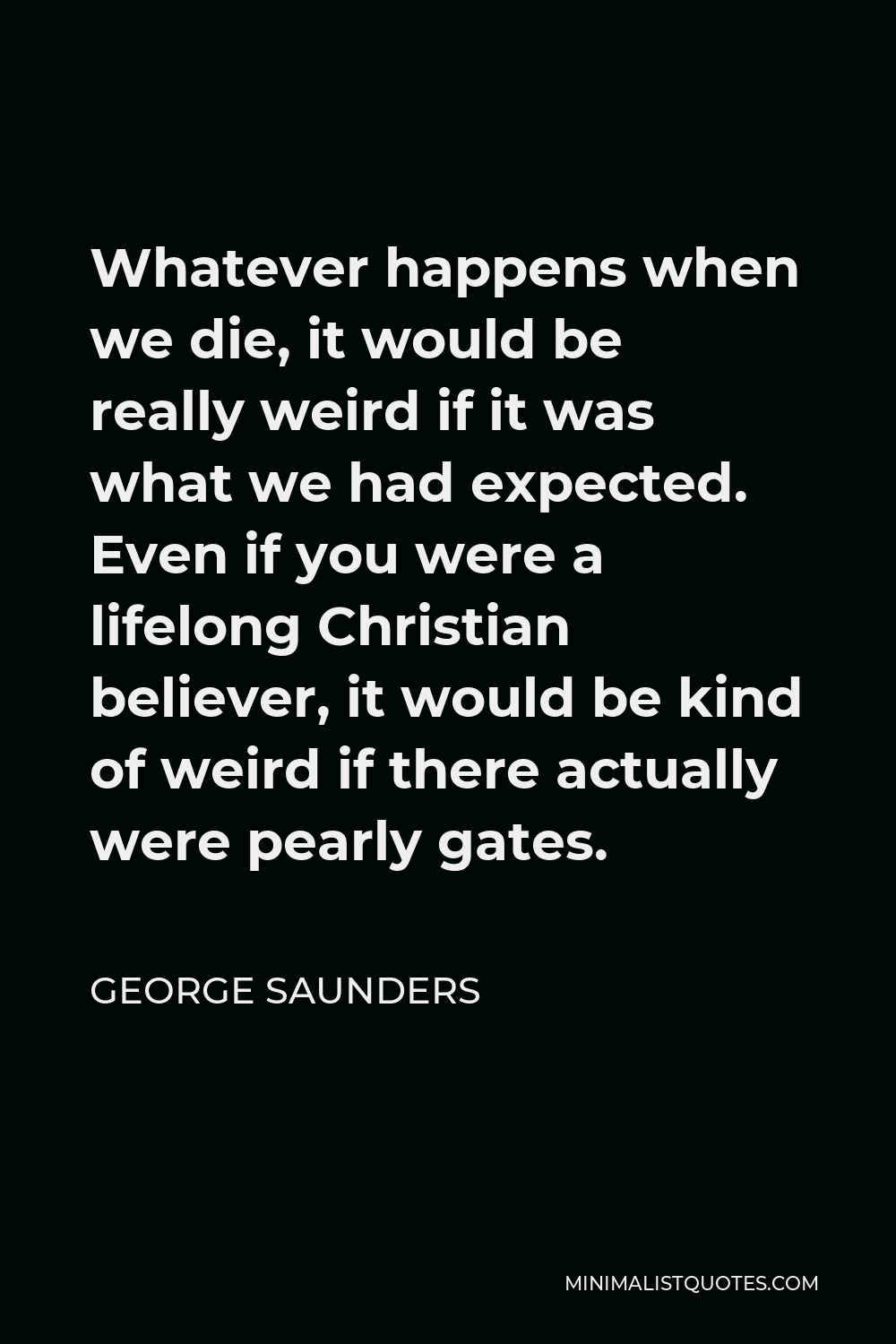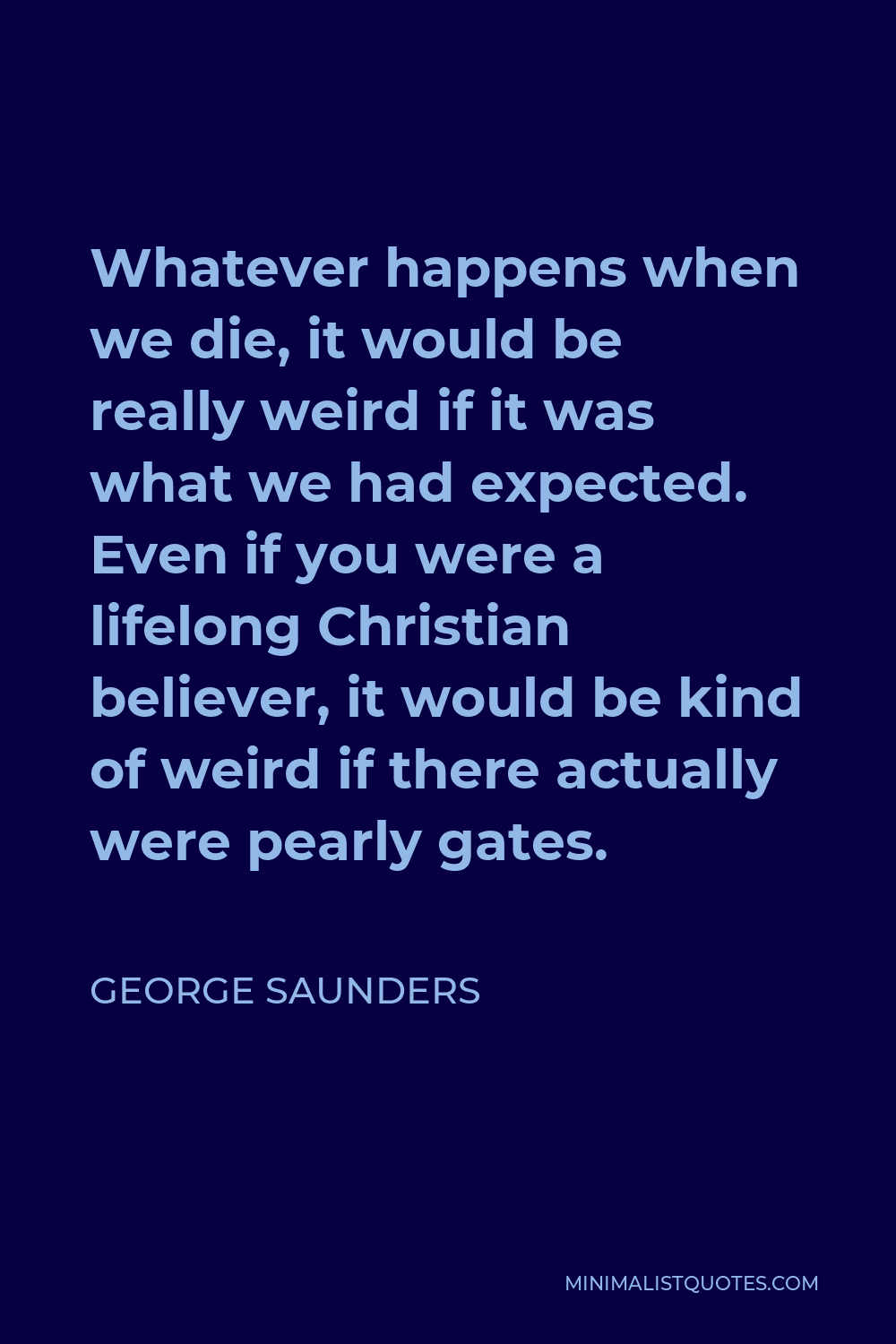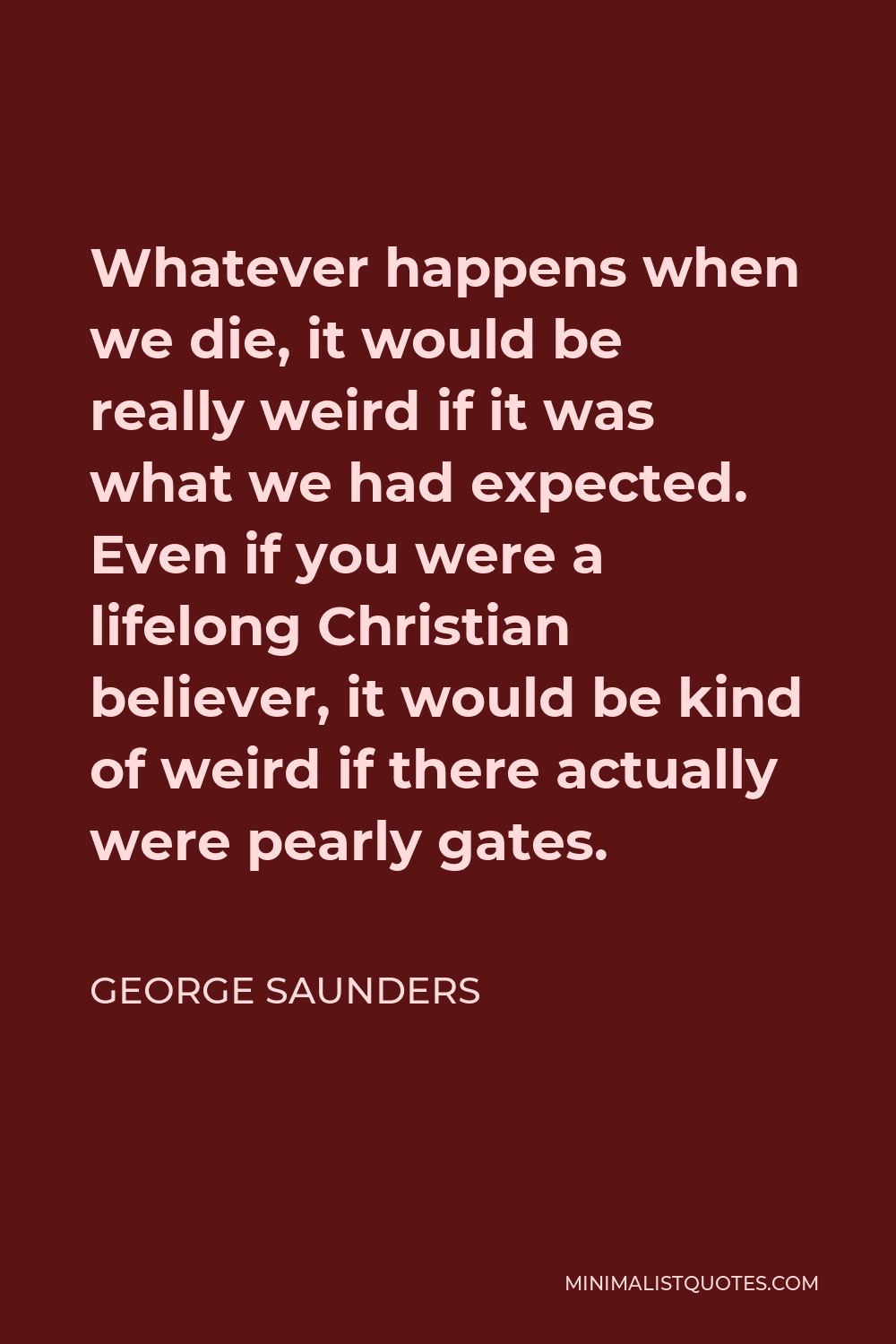As a fiction writer, one of things you learn is God lives in specificity. You know, human kindness is increased as we pursue specificity.
GEORGE SAUNDERSWhatever happens when we die, it would be really weird if it was what we had expected. Even if you were a lifelong Christian believer, it would be kind of weird if there actually were pearly gates.
More George Saunders Quotes
-





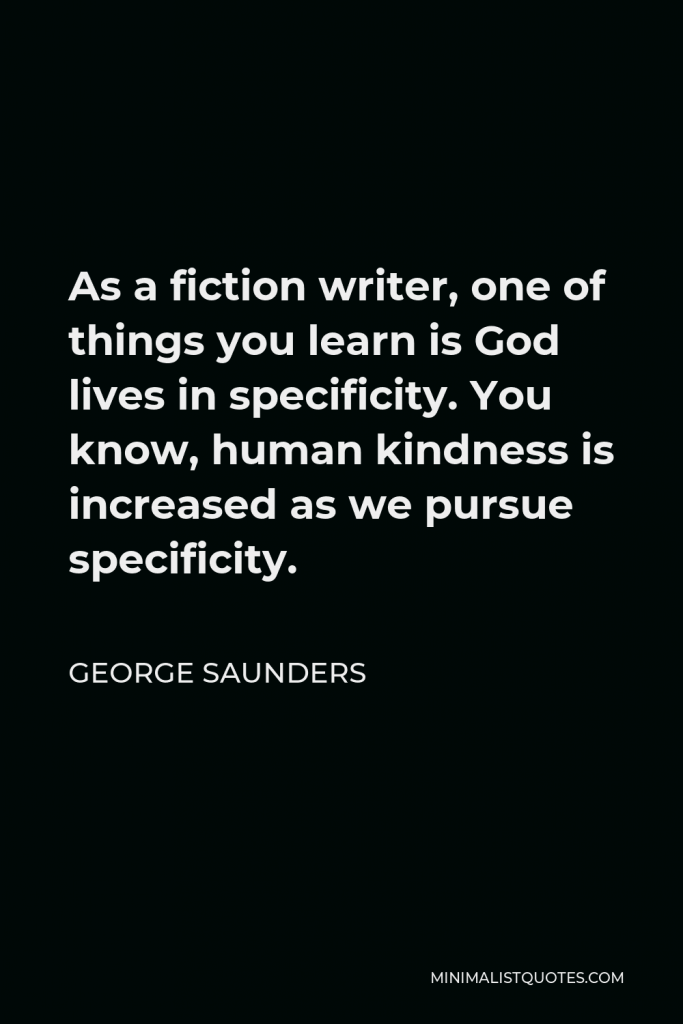

-





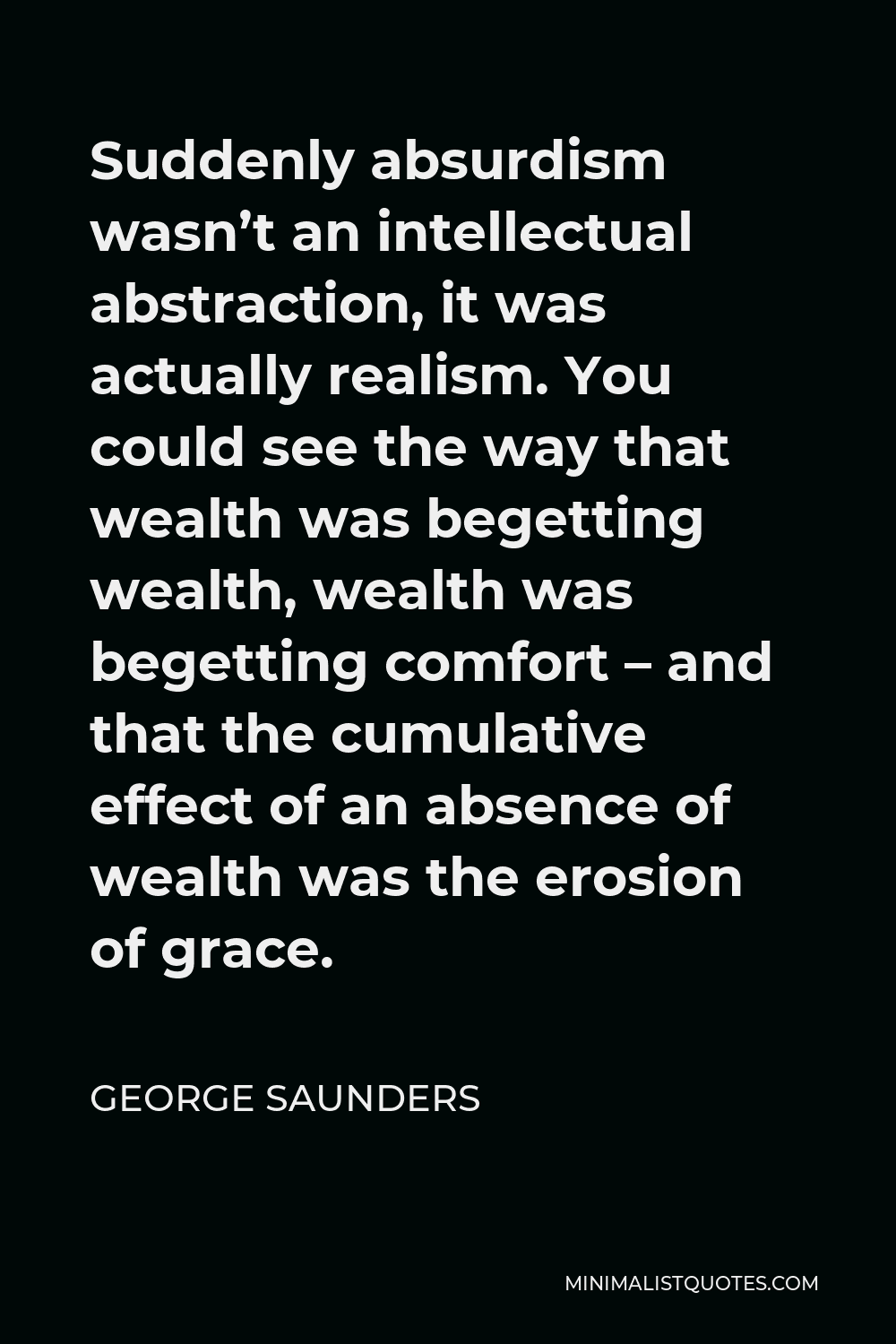
Suddenly absurdism wasn’t an intellectual abstraction, it was actually realism. You could see the way that wealth was begetting wealth, wealth was begetting comfort – and that the cumulative effect of an absence of wealth was the erosion of grace.
GEORGE SAUNDERS -







When somebody you’ve known for 20 years, and with whom you have a full context, winks at you or whatever, it can be huge. I think in a sense what you’re trying to re-create in fiction is that.
GEORGE SAUNDERS -





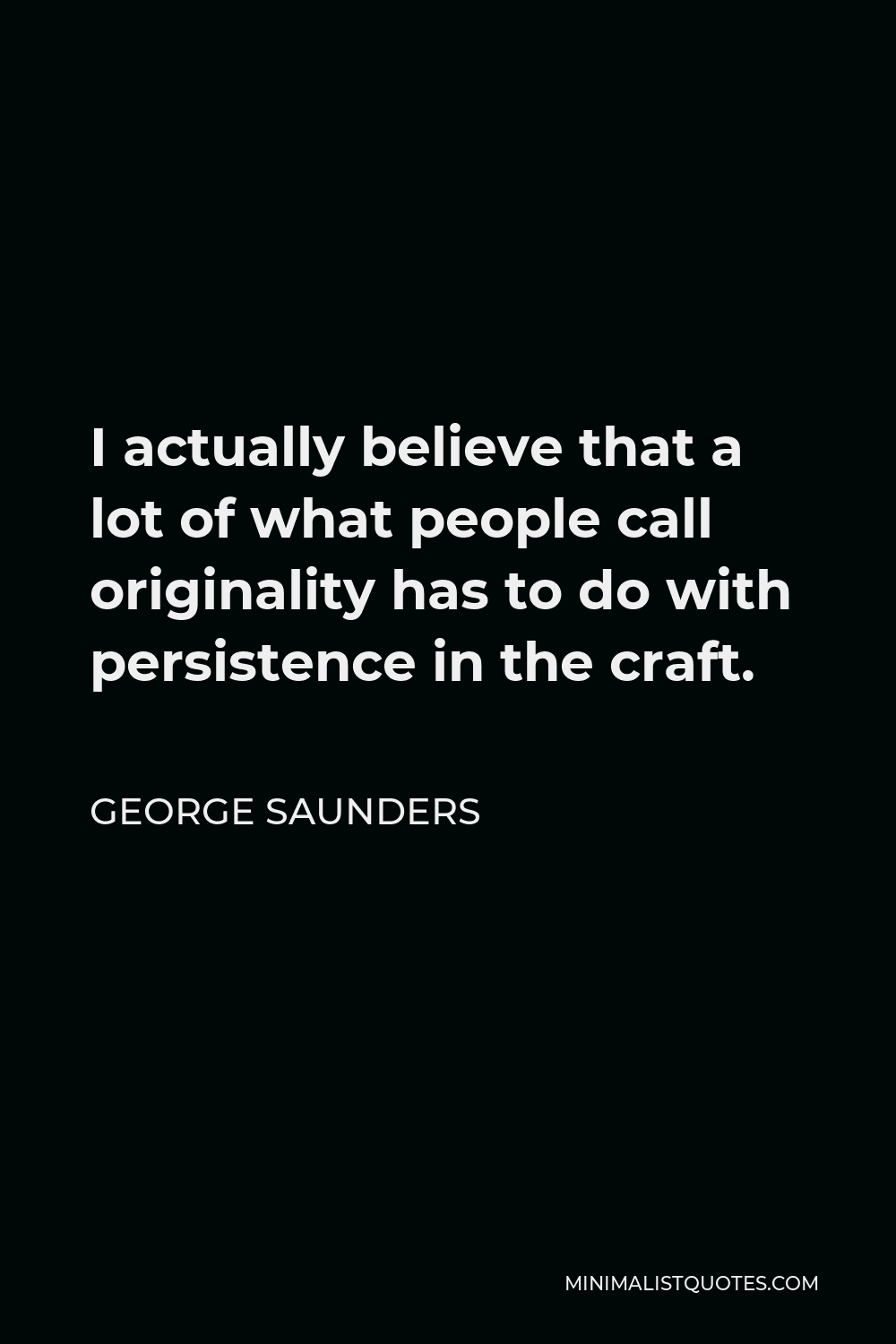
I actually believe that a lot of what people call originality has to do with persistence in the craft.
GEORGE SAUNDERS -





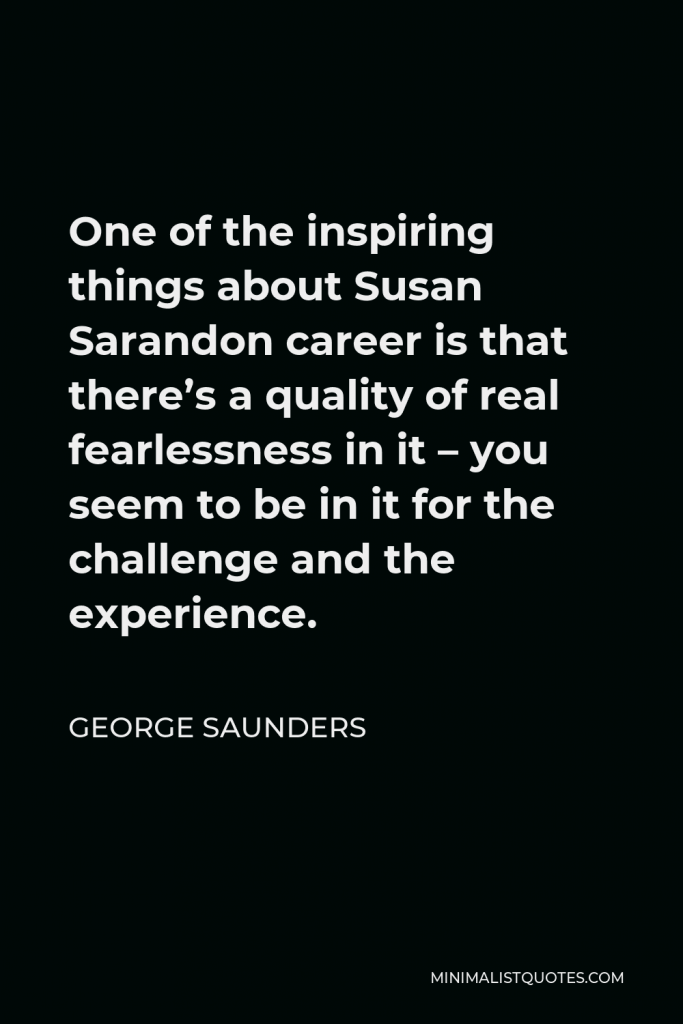

One of the inspiring things about Susan Sarandon career is that there’s a quality of real fearlessness in it – you seem to be in it for the challenge and the experience.
GEORGE SAUNDERS -







Nostalgia is, ‘Hey, remember the other mall that used to be there?’
GEORGE SAUNDERS -






What’s really baffling to me is the way that the technology has risen up to help us become more materialistic.
GEORGE SAUNDERS -





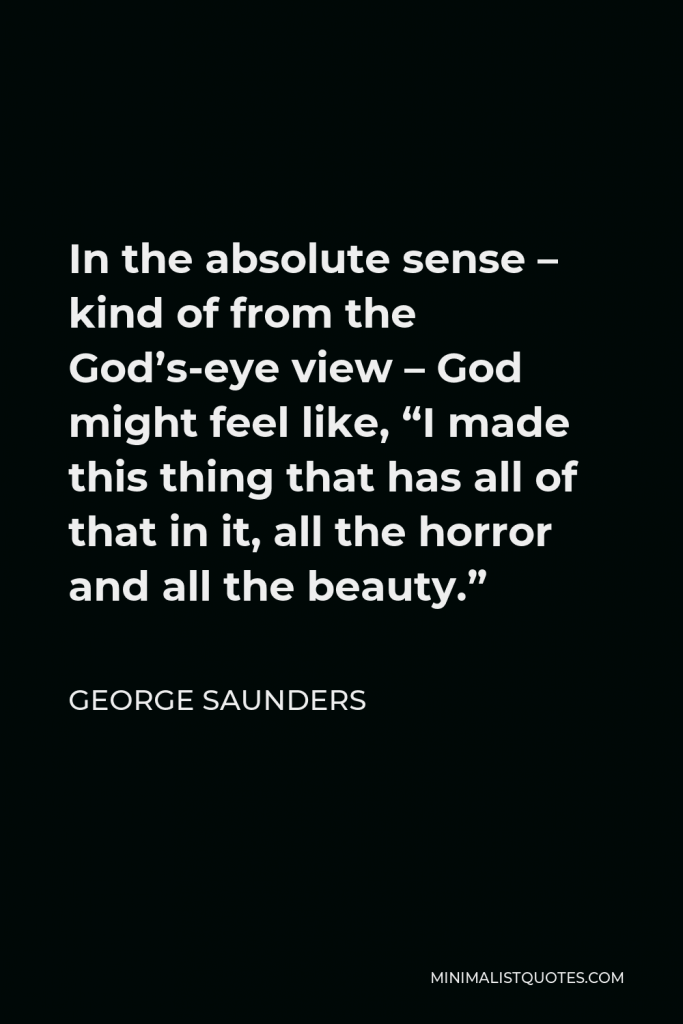

In the absolute sense – kind of from the God’s-eye view – God might feel like, “I made this thing that has all of that in it, all the horror and all the beauty.”
GEORGE SAUNDERS -





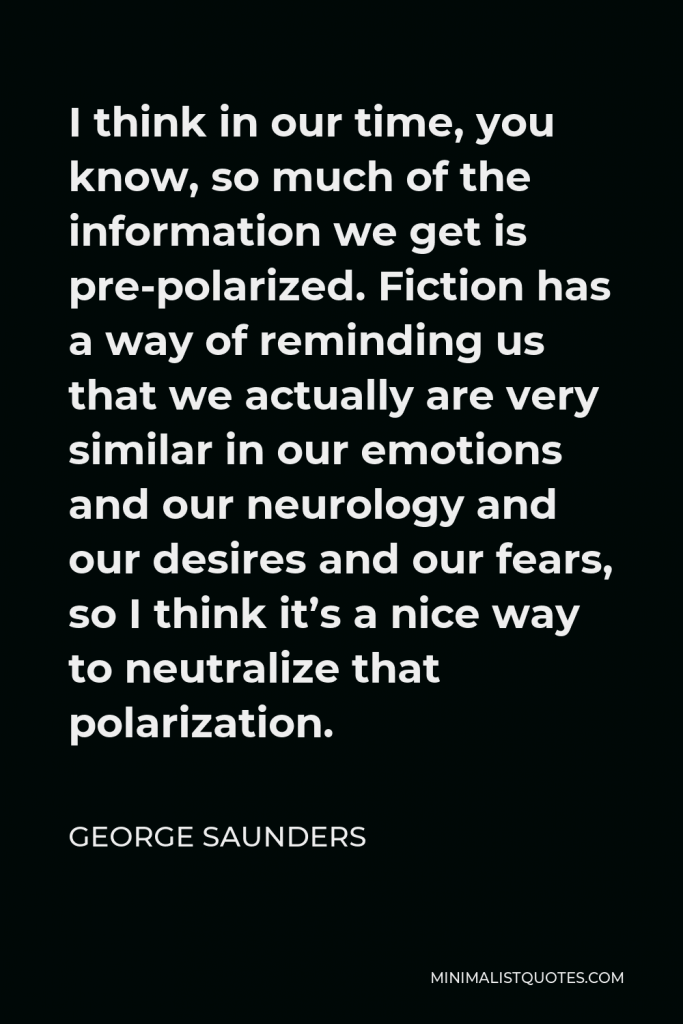

I think in our time, you know, so much of the information we get is pre-polarized. Fiction has a way of reminding us that we actually are very similar in our emotions and our neurology and our desires and our fears, so I think it’s a nice way to neutralize that polarization.
GEORGE SAUNDERS -





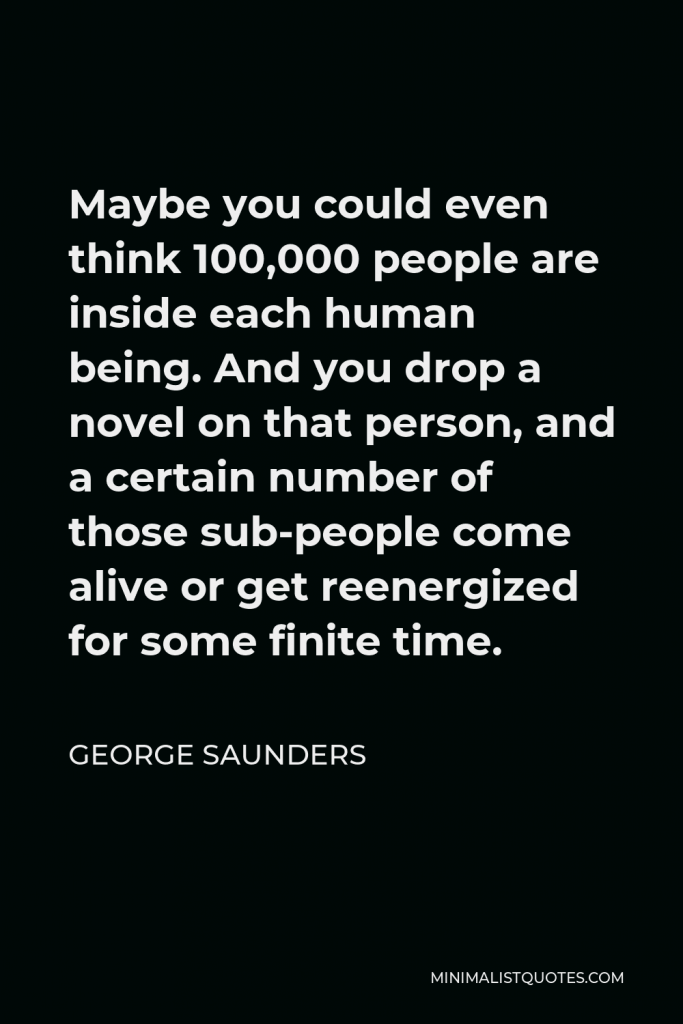

Maybe you could even think 100,000 people are inside each human being. And you drop a novel on that person, and a certain number of those sub-people come alive or get reenergized for some finite time.
GEORGE SAUNDERS -






Anyone can be shamed, but feeling guilt requires empathy within.
GEORGE SAUNDERS -





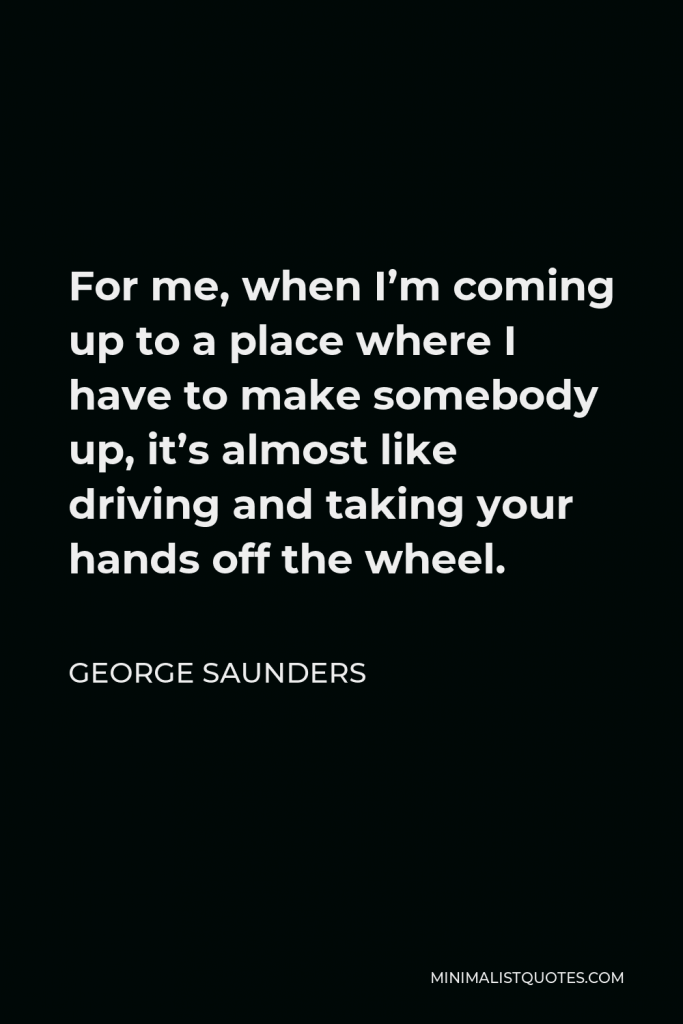

For me, when I’m coming up to a place where I have to make somebody up, it’s almost like driving and taking your hands off the wheel.
GEORGE SAUNDERS -






The most hopeful thing in the stories, I hope, is wit. I make it up. If I make up a world in which we’re ruled by big talking turds, it doesn’t mean that we are. So you shouldn’t feel depressed.
GEORGE SAUNDERS -





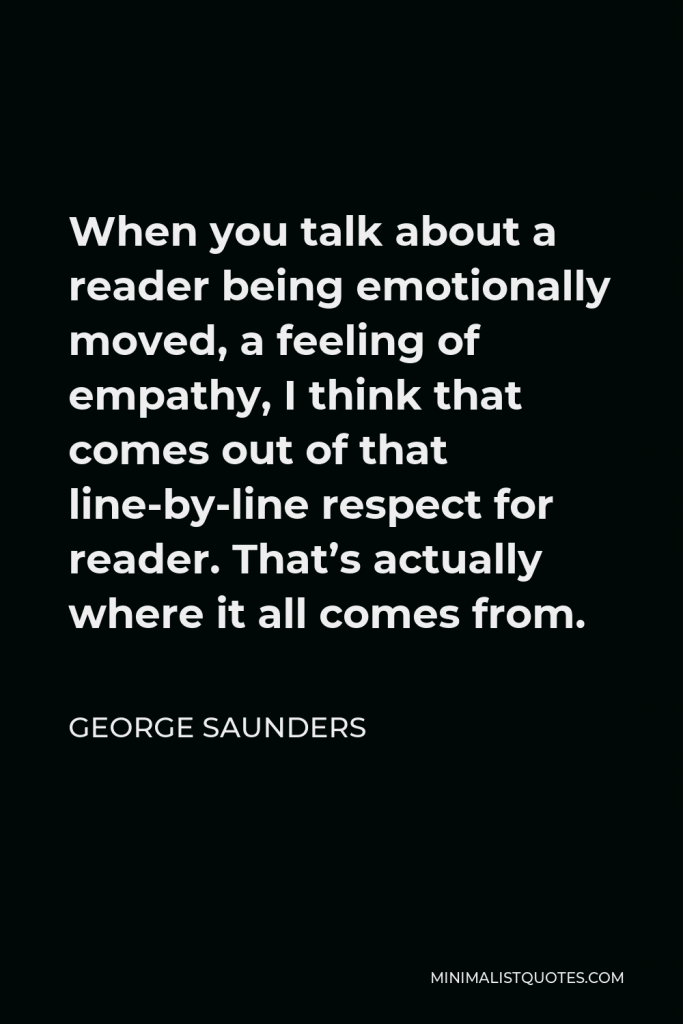

When you talk about a reader being emotionally moved, a feeling of empathy, I think that comes out of that line-by-line respect for reader. That’s actually where it all comes from.
GEORGE SAUNDERS -





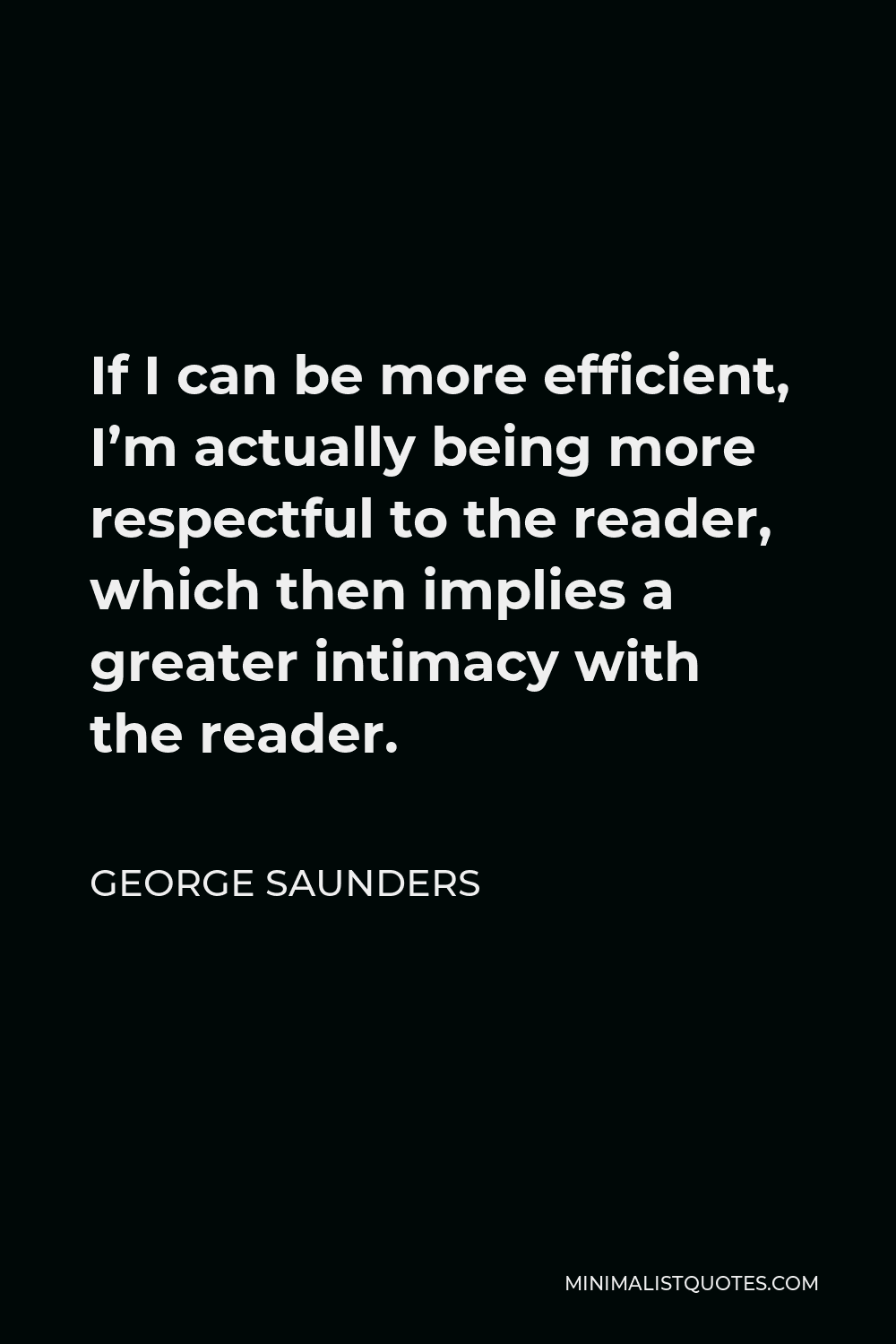
If I can be more efficient, I’m actually being more respectful to the reader, which then implies a greater intimacy with the reader.
GEORGE SAUNDERS -





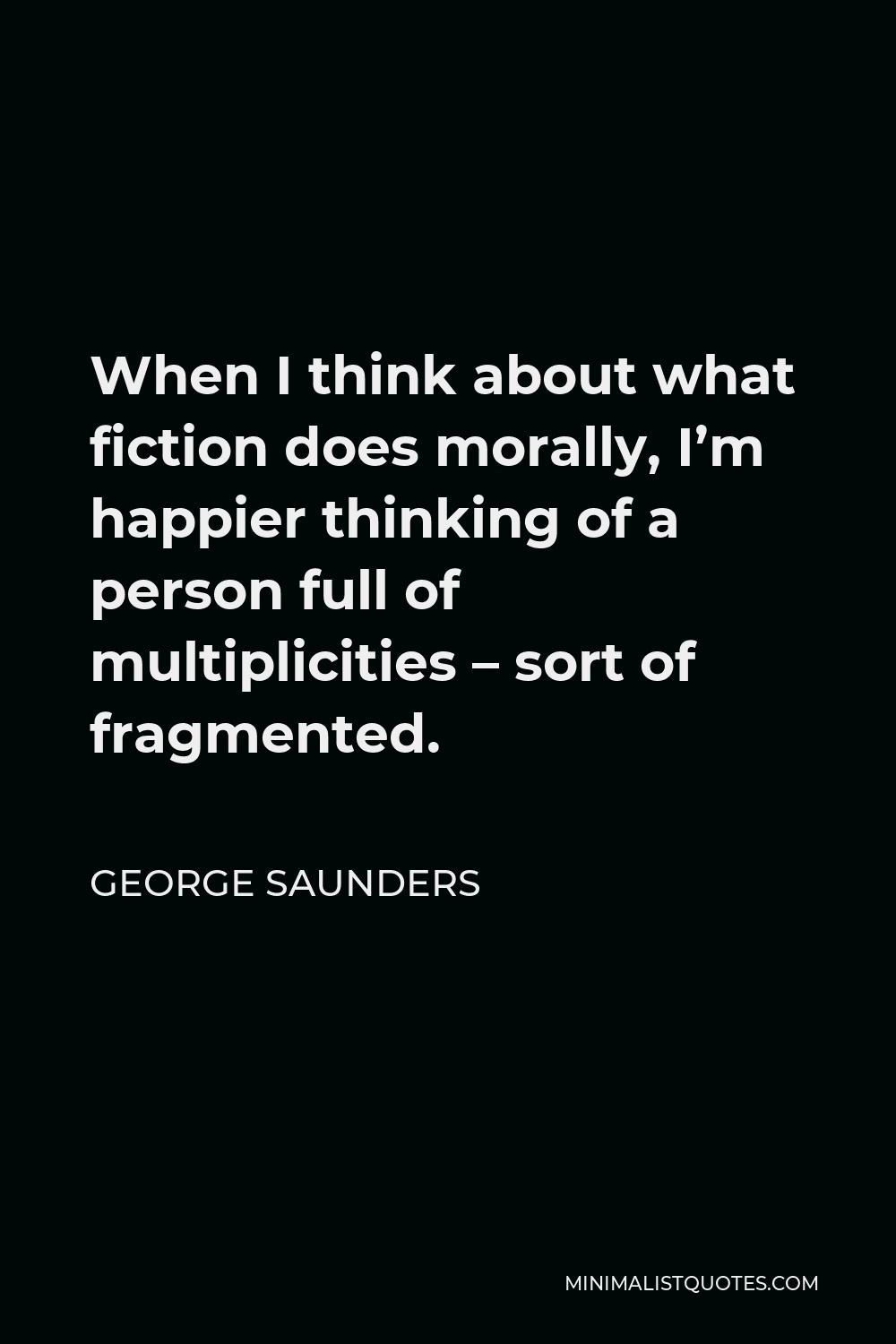
When I think about what fiction does morally, I’m happier thinking of a person full of multiplicities – sort of fragmented.
GEORGE SAUNDERS
